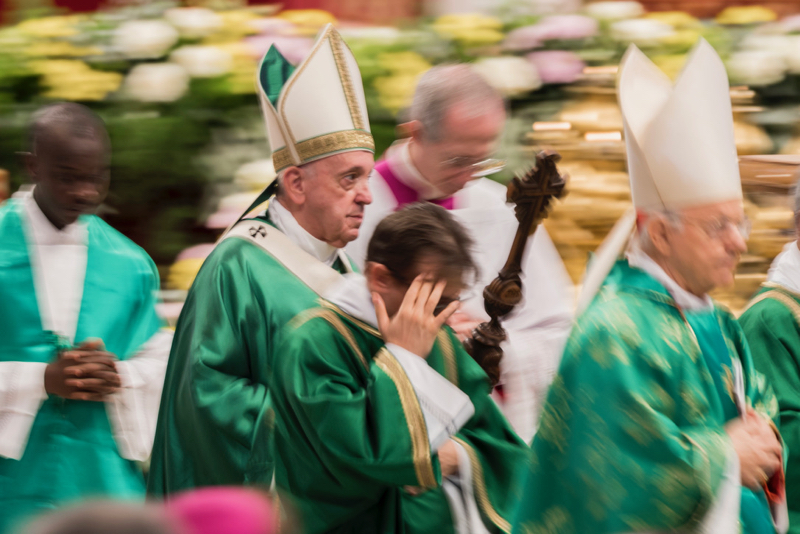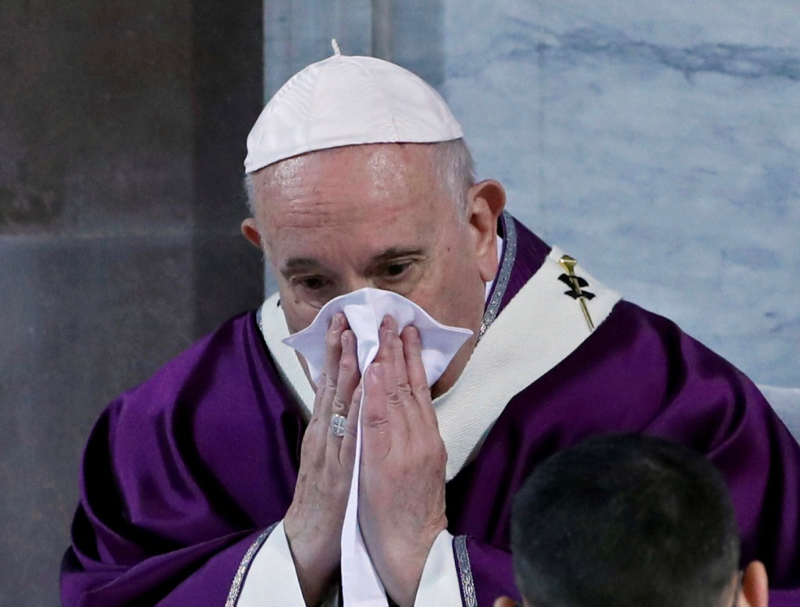The Pope has cancelled his official audiences for today, Friday 28, due to ill-health. The decision came one day after he cancelled a planned mass for the clergy of Rome, and two days after he was spotted coughing and sneezing at Ash Wednesday Mass.
According to a Vatican spokesperson, Pope Francis was keeping to his schedule of private meetings and had celebrated morning mass as usual, but decided to cancel his official audiences for the day.
Although the pontiff is generally healthy, the 83-year old suffers from sciatica, which makes some movements difficult, and lost part of one of his lungs as a young man due to illness.
Meanwhile, in a prepared speech, Pope Francis warned clergy of the pitfalls of bitterness.
Confronting and not giving in to bitterness helps priests realise that they are not all-powerful beings but sinners who have been forgiven and called by God, Pope Francis said.
Bitterness is "a subtle enemy" that hides and "robs us of the joy of the vocation we were called to," the pope said in his address to clergy of the Diocese of Rome read by Cardinal Angelo De Donatis, papal vicar of the diocese.
Pope Francis was unable to attend the traditional Lenten penitential service with priests of the due to his mild cold, the Vatican said.
In his talk, titled "Bitterness in the life of a priest," the pope said his reflection was based on listening to the experiences of seminarians and priests of various Italian dioceses and did not refer to any specific situation.
"The majority of priests that I know are happy about their lives and consider these types of bitterness as part of a normal life, without drama," he said.
The first cause of bitterness, he said, can be traced to problems with one's faith, for example, when a priest feels "deceived" by God, possibly because he "replaced hope" with his own expectations about priestly life.
More importantly, a priest's relationship with God, which helps him to "distinguish between expectations and hopes", plays an important role.
"Expectation is born when we spend our lives trying to save our lives: we get angry looking for security, rewards or promotions. When we receive what we want, we almost feel that we will never die, that it will always be so. Because we are the point of reference," the pope explained.
"Hope, instead, is something that is born in the heart when we decide not to defend ourselves anymore," he said. "When I recognise my limits and that not everything begins and ends with me, then I recognise the importance of trust."



 Loading ...
Loading ...